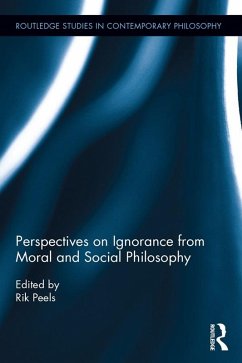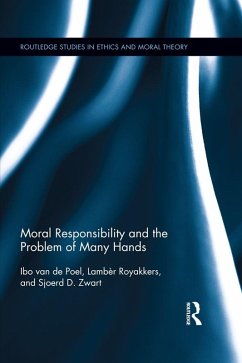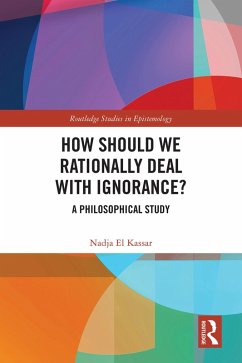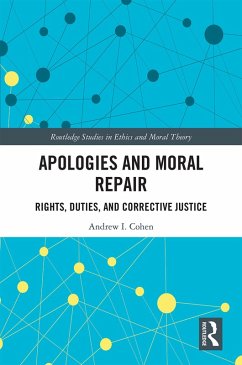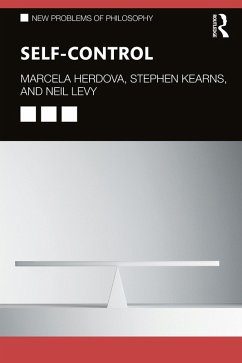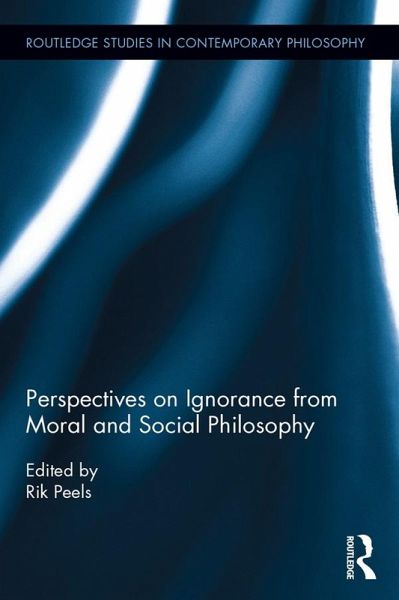
Perspectives on Ignorance from Moral and Social Philosophy (eBook, PDF)
Versandkostenfrei!
Sofort per Download lieferbar
42,95 €
inkl. MwSt.
Weitere Ausgaben:

PAYBACK Punkte
21 °P sammeln!
This edited collection focuses on the moral and social dimensions of ignorance-an undertheorized category in analytic philosophy. Contributors address such issues as the relation between ignorance and deception, ignorance as a moral excuse, ignorance as a legal excuse, and the relation between ignorance and moral character. In the moral realm, ignorance is sometimes considered as an excuse; some specific kind of ignorance seems to be implied by a moral character; and ignorance is closely related to moral risk. Ignorance has certain social dimensions as well: it has been claimed to be the engin...
This edited collection focuses on the moral and social dimensions of ignorance-an undertheorized category in analytic philosophy. Contributors address such issues as the relation between ignorance and deception, ignorance as a moral excuse, ignorance as a legal excuse, and the relation between ignorance and moral character. In the moral realm, ignorance is sometimes considered as an excuse; some specific kind of ignorance seems to be implied by a moral character; and ignorance is closely related to moral risk. Ignorance has certain social dimensions as well: it has been claimed to be the engine of science; it seems to be entailed by privacy and secrecy; and it is widely thought to constitute a legal excuse in certain circumstances. Together, these contributions provide a sustained inquiry into the nature of ignorance and the pivotal role it plays in the moral and social domains.
Dieser Download kann aus rechtlichen Gründen nur mit Rechnungsadresse in A, B, BG, CY, CZ, D, DK, EW, E, FIN, F, GR, HR, H, IRL, I, LT, L, LR, M, NL, PL, P, R, S, SLO, SK ausgeliefert werden.




